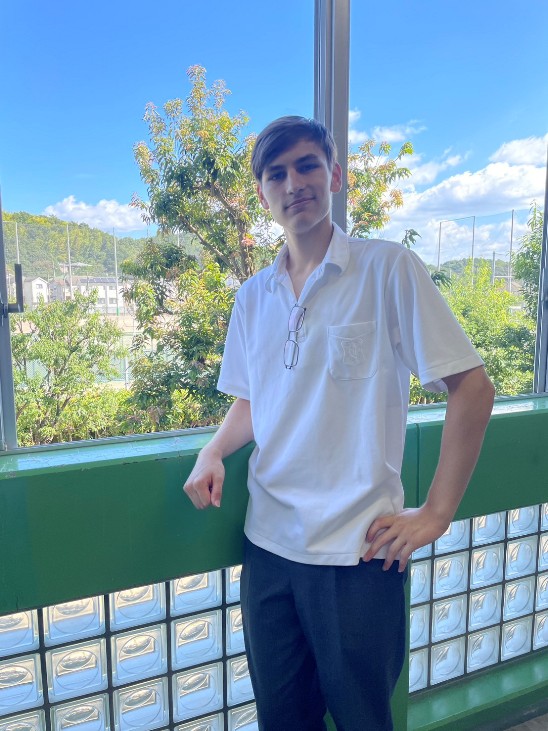
はじめまして。わたしのなまえはクリスチャン・ライドマです。17さいでエストニアからきました。
Nice to meet you! My name is Kristjan Raidma.
I’m from Estonia and will be here in Japan for one year with the Rotary exchange program.
You can find me at class 2D. I am not yet very good at Japanese.
I like experiencing and creating stories (or just: video games, anime, mythology and a bunch of other things).
I hope to learn the Japanese language, experience the culture and make new connections.
Thank you for having me and have a good rest of your day.
And as we say in Estonian: Meeldiv kohtuda!
ありがとうございます。これからよろしくおねがいします。
2025.10.06
クリスチャン・ライドマ(Kristjan Raidma)2年D組

はじめまして。わたしのなまえはクリスチャン・ライドマです。17さいでエストニアからきました。
Nice to meet you! My name is Kristjan Raidma.
I’m from Estonia and will be here in Japan for one year with the Rotary exchange program.
You can find me at class 2D. I am not yet very good at Japanese.
I like experiencing and creating stories (or just: video games, anime, mythology and a bunch of other things).
I hope to learn the Japanese language, experience the culture and make new connections.
Thank you for having me and have a good rest of your day.
And as we say in Estonian: Meeldiv kohtuda!
ありがとうございます。これからよろしくおねがいします。